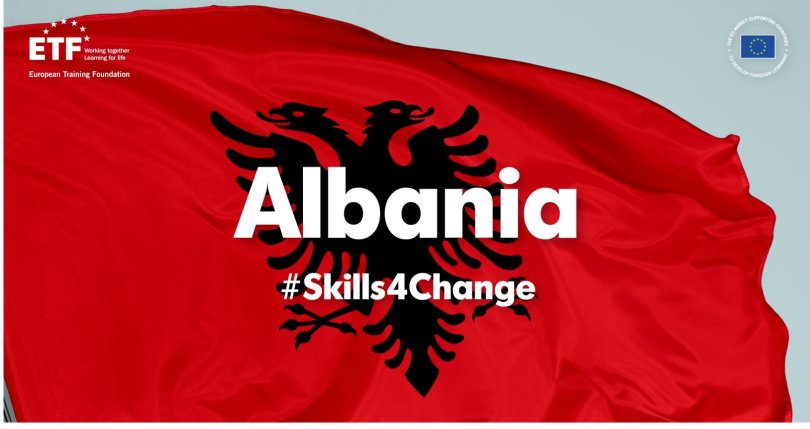
Focusing on Albania
Albania is a candidate country for EU membership which benefits from EU funds under the Instrument for Pre-Accession Assistance (IPA) in order to carry out comprehensive reforms and strategic investments for the accession pathway. It also benefits from participation in various other EU programmes including Erasmus + and Horizon. The European Union opened accession negotiations with Albania in March 2020.
The ETF cooperates with and complements the work of the European Commission and the European External Action Service in its support to Albania, including responding to requests from the Delegation of the European Union to Albania contributing to EU-Albania bilateral policy dialogue.
The ETF gives input to EU policy monitoring mechanisms, including the Economic Reform Programme for the social sector, in particular in training and employment policy, assessment of progress on the Small Business Act for Europe and wider human capital developments reported in the Torino Process. It encourages Albanian actors to participate in European platforms and dialogue processes.
Specific initiatives supported by the ETF include:
- the ETF’s Creating New Learning initiative, as part of which the ETF has been supporting the piloting of the EU SELFIE exercise to embed digital technologies in teaching, learning and the implementation of the Digital Needs Analysis for Teachers Tool (DNATT), together with other countries in the Western Balkans, which helps teachers to self-assess their digital competences and assess their training needs, their use of digital technologies and their experiences of relevant continuing professional development. The tool builds upon the European Digital Competence Framework for Educators (DigCompEdu) that defines 22 digital competences organised in six Areas. DNATT was developed and piloted by the ETF in partnership with ERI SEE, EU’s JRC and the national authorities and 123 schools in the Western Balkans;
- the ETF’s Network of Excellence which connects 150 experts and providers in Europe and elsewhere on issues such as green skills and new occupations finding solutions and sharing with others which includes partners from Albania which have enhanced the effectiveness of national VET networks;
- the ETF project “Migration dynamics from human capital perspective in the Western Balkans” which analyses the impact of migration on the skills pool and utilisation in the origin countries of the Western Balkans including Albania;
- support to the Albanian Qualification Framework taskforce supporting the implementation of the recognition of prior learning and the assessment of VET providers providing post-secondary vocational qualifications;
- support on the European Alliance for Apprenticeships to which Albania participants, advice on the evaluation of VET student company internships, and assistance in the establishment of the dual training system under the National Chamber of Crafts; and,
- the participation of Albanian experts to the ETF Forum for Quality Assurance in VET.
Did you like this article? If you would like to be notified when new content like this is published, subscribe to receive our email alerts.